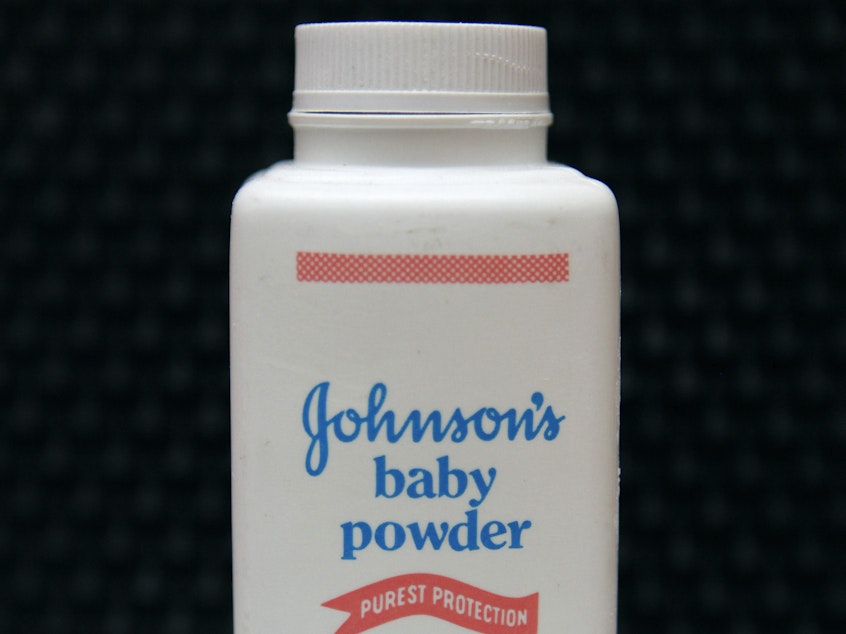Appeals court clears the way for more lawsuits over Johnson's Baby Powder

Tens of thousands of people who say they were sickened by Johnson's Baby Powder are once again free to sue the manufacturer, after a federal appeals court rejected Johnson & Johnson's effort to block those lawsuits through bankruptcy.
The 3rd U.S. Circuit Court of Appeals dismissed a bankruptcy filing by a Johnson & Johnson spinoff company, ruling that the company was not in genuine financial distress. The court noted that the spinoff company still has access to Johnson & Johnson's assets, worth an estimated $61.5 billion.
Tens of thousands of people who say they were sickened by Johnson's Baby Powder are once again free to sue the manufacturer, after a federal appeals court rejected Johnson & Johnson's effort to block those lawsuits through bankruptcy.
The 3rd U.S. Circuit Court of Appeals dismissed a bankruptcy filing by a Johnson & Johnson spinoff company, ruling that the company was not in genuine financial distress. The court noted that the spinoff company still has access to Johnson & Johnson's assets, worth an estimated $61.5 billion.
Plaintiffs attorneys cheered the decision, accusing Johnson & Johnson of trying to "twist and pervert" the bankruptcy code.
"Bankruptcy courts aren't a menu option for rich companies to decide that they get to opt out of their responsibility for harming people," said attorney Jon Ruckdeschel. "And that's what was happening here."
Johnson & Johnson promised to appeal the decision.
Sponsored
"Our objective has always been to equitably resolve claims related to the Company's cosmetic talc litigation," the company said in a statement. "Resolving this matter as quickly and efficiently as possible is in the best interests of claimants and all stakeholders."
Johnson & Johnson was facing some 38,000 lawsuits from people who allege its iconic baby powder was tainted with asbestos — a substance known to cause cancer and other illnesses. The company insists its baby powder is safe and does not contain asbestos. In recent years, the company has reformulated its baby powder, replacing talc with corn starch.
The company tried to short-circuit the lawsuits in 2021, using a controversial legal tactic known as the "Texas Two Step." It first assigned liability for the baby powder complaints to a spin-off company, called LTL Management, then immediately put that company into bankruptcy.
A bankruptcy judge upheld the maneuver, but the appeals court disagreed.
Other big companies including Georgia Pacific and 3M have tried similar tactics to limit their exposure to widespread lawsuits. Legal experts and policymakers are watching the cases closely.
Sponsored
"We need to close this loophole for good," Sen. Dick Durbin, D-Ill., said last year. "Bankruptcy is supposed to be a good-faith way to accept responsibility, pay one's debts as best you can, and then receive a second chance, not a Texas two-step, get-0ut-of-jail-free card for some of the wealthiest corporations on earth."
A similar case is now pending before a different federal appeals court in New York. Federal judges there are reviewing a provision of drug maker Purdue Pharma's bankruptcy deal that would allow members of the Sackler family, who are not bankrupt, to pay roughly $6 billion into a settlement.
In exchange, the Sacklers would receive immunity from lawsuits linked to their private company's marketing and sales of opioids, including OxyContin. [Copyright 2023 NPR]



